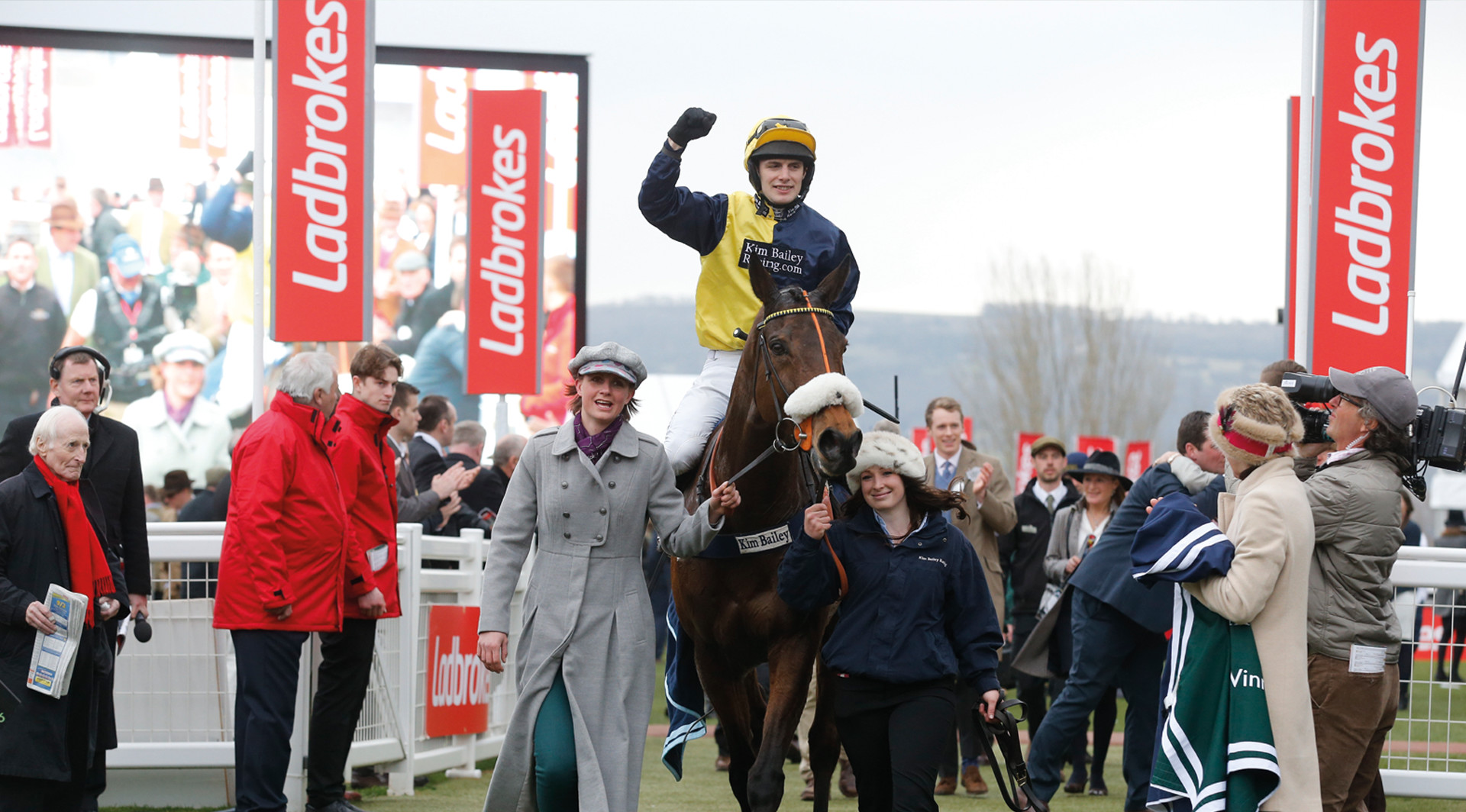Types Of Ownership
There are many different ways you can become involved in racehorse ownership. The main thing to remember is that owning a racehorse or at least part of one, does not have to be expensive. Plus, with Kim Bailey Racing, there are many other benefits that come with ownership.
The ownership option most suitable for you will vary depending on your budget and the amount of involvement you would like. The different types of racehorse ownership are listed below.
For further details, the BHA website has produced a very helpful online ownership brochure which has loads of information for new owners.
Sole Ownership
This is the form of ownership when you are the sole owner. You are responsible for all costs and profits. You have sole choice of colours and names (if the horse is not already named).
Co Ownership
Co-ownership of a racehorse involves more than one person. The 4 different types of co-ownership as listed below.
1. Company Ownership
This is a way of using your company to own a horse. It is a great way of advertising your company or perhaps a way of bringing company members/employees together. You can name the horse after your company providing you buy a horse that is un-named. You can also run a horse that is already named but owned by your company. For example, you can call a horse Allied Carpets, or, for example, a horse could be owned by Silver Cross Prams.
2. Racing Partnership
For two or more people who want to share the ownership of one or more horses, and where all members of the Partnership are registered owners. Partnerships allow owners to define the percentage of each horse they own and split costs and winnings in accordance with ownership share. The horse or horses can run in either a joint ownership name e.g. T.W Jones and K.C.Bailey or just T.W Jones.
3. Racing Partnership
For people who want to share the ownership of one or more horses. A Syndicate is managed and administered by the Syndicator/s. Only the syndicator/s must register as a Sole/Company owner. It isn’t necessary for members of the Syndicate to register as owners.
4. Leasing
This form of ownership avoids a capital outlay for a racehorse. It can be set up for a certain period of time, perhaps one year or season, sometimes for even longer. Usually it is a stud that wishes to see one of their off spring run while not having the burden or cost of training fees this way when she has retired from racing they can breed from her. Usually leases are set up so that you benefit from most of the prize money.
Racing Clubs
These have become a very popular way of dipping your toe in to the water. There are several different Clubs at varying entrance prices. For people who want to pay a subscription to experience racehorse ownership. A Racing Club is managed and administered by the Club manager/s and it is the Club itself, as opposed to its members, that owns the horse/s. Members pay a fee to be part of club and to enjoy some of the benefits of racehorse ownership. Only individuals who want to set up or administer a Racing Club must register as a Sole/Company owner. It isn’t necessary for members of a Racing Club to register as owners.
Fancy owning a horse with Kim Bailey Racing?
Whether you are an experienced owner, or totally new to racing, why not contact us for more information and come and see us at our base in the Cotswolds.
As Kim regularly visits the sales to purchase horses that he believes have potential, he always has a selection of horses for sale and immediately available for inspection.
If you would like to visit Thorndale Farm to see the facilities, we are just a telephone call away (01242 890241).

